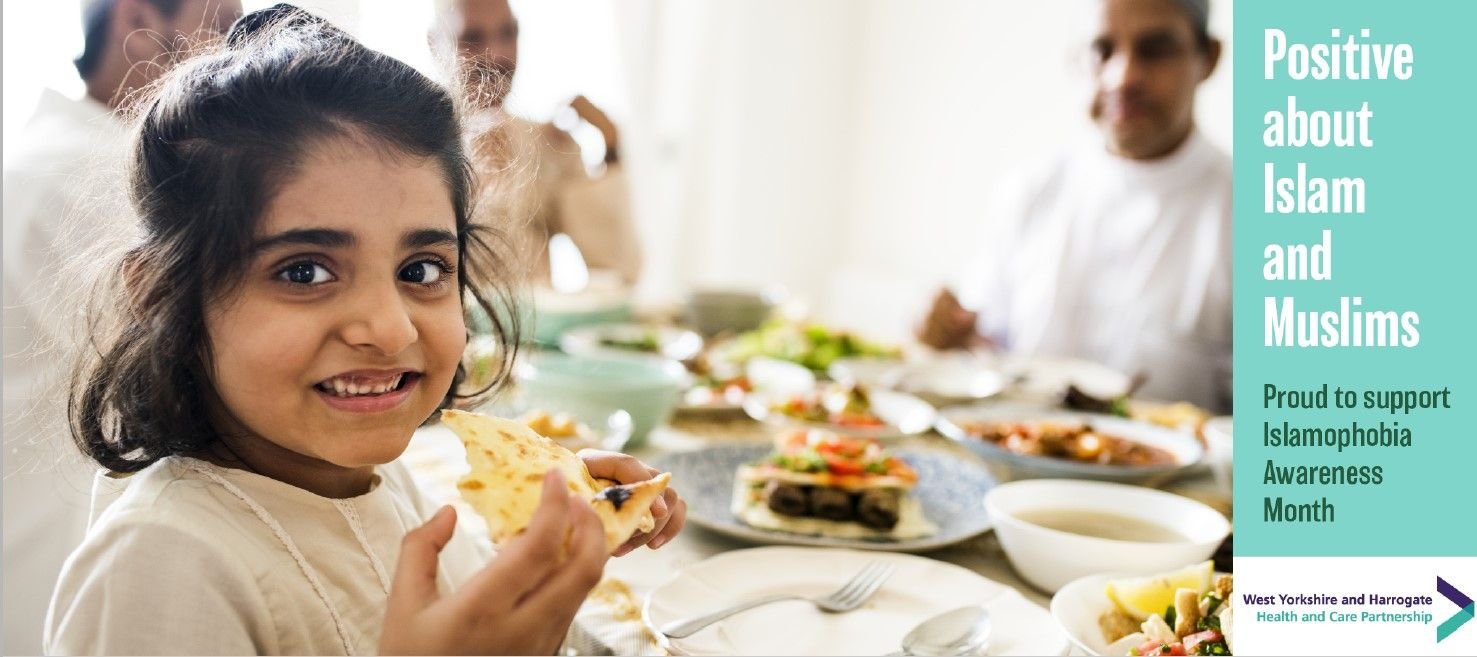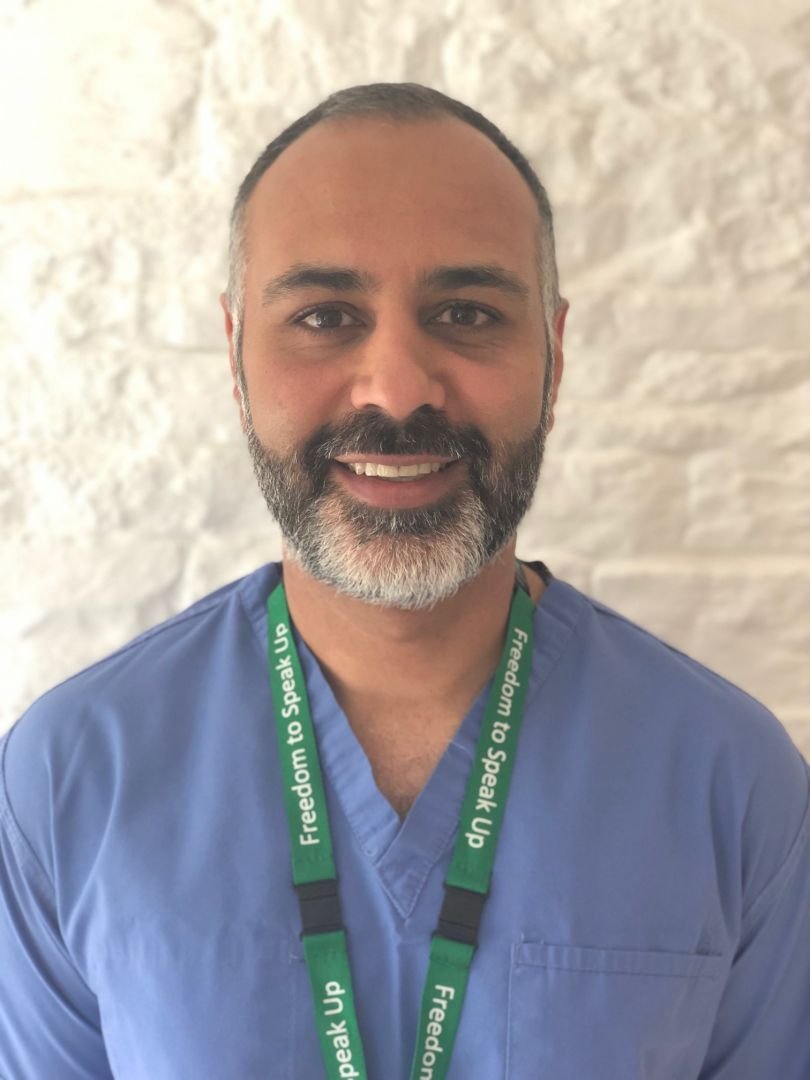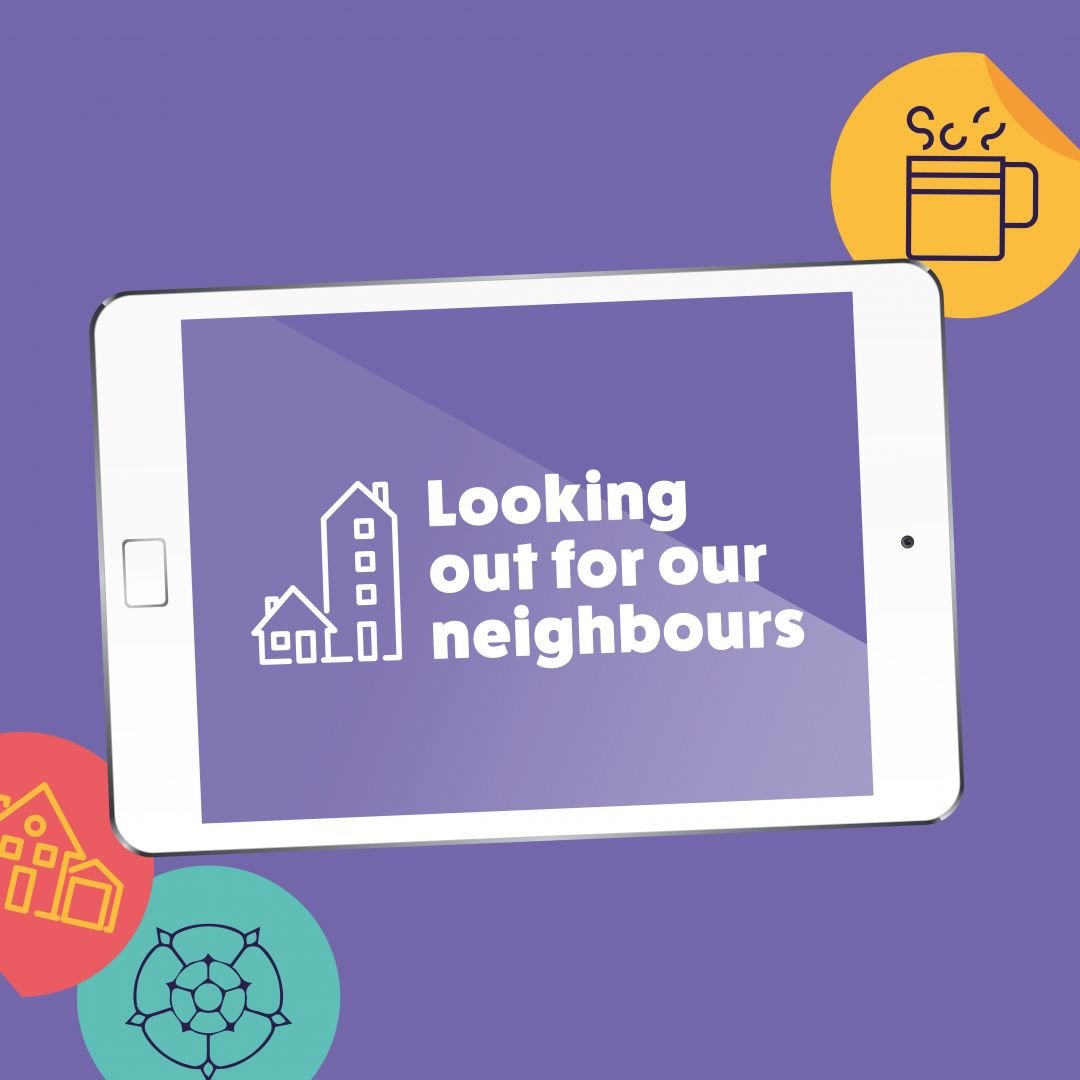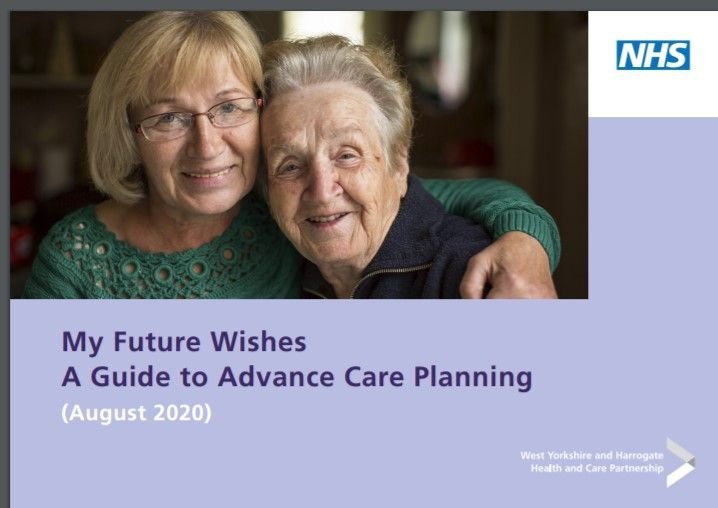This week’s leadership message comes from Cllr Helen Hayden, who is the Chair of West Yorkshire Joint Health Scrutiny Committee.
Hello, my name is Helen
And I’m the chair of the West Yorkshire Joint Health Scrutiny Committee. I’m a Leeds City Councillor and I also chair Leeds Council’s Adults Health and Active Lifestyle Scrutiny Board.
All Councils have scrutiny committees that hold Council executives to account, but also examine issues in depth and make proposals for policy development. Like it says on the tin, the West Yorkshire Health Scrutiny Committee (JHOSC) does the same, but for health and on a West Yorkshire basis.
The JHOSC has ten members, two from each of the five Councils in West Yorkshire. Two North Yorkshire councillors are co-opted to the Committee as the Partnership boundaries have extended to include Craven and Harrogate.
The JHOSC has several roles. When the NHS has proposals for significant variations in service, it is required to consult with scrutiny committees. When those proposals cover more than one council area, the consultation needs to be undertaken with a joint committee. That’s where the JHOSC comes in. As an example, we have recently just completed an examination of proposals for restructuring vascular services. This is the most formal aspect of our work and an important part of our role.
In my view, however our informal or discretionary role is just as important. This is where we can look at an issue that we think is important to local people and we can meet with NHS managers to discuss the challenges they face and proposals for change. Often this is to discuss progress on priorities that the West Yorkshire and Harrogate Health Care Partnership has set in their Five Year Plan. For example, at our last meeting in September, we discussed progress on the Cancer Alliance Programme.
And, unfortunately, the pandemic will feature on all our agenda.
We have also considered assessment and treatment units for people with learning disabilities and stroke services at recent meetings.
Committee members were clear at our August meeting that they hoped that the NHS Nightingale Yorkshire and the Humber in Harrogate would remain open until the spring. They also felt that financial support should be provided for people asked to self-isolate. We wrote to NHS England and Matt Hancock on both these matters and I am pleased that the wishes of the Joint Committee have been achieved on both matters, although I don’t think we should claim all the credit!
Councillors are lay people with a great understanding of what local people feel and think. Many of our constituents tell us about their experiences of health services both good and bad and of the concerns that they and their families may have. Alongside all the other excellent consultation work that the NHS does, I think that these insights can play a big part in helping the NHS improve the great services it already offers to West Yorkshire people. And a word of warning - although we are mainly lay people, we do have a handful of retired clinicians lurking in our midst!
All our meetings are held in public and members of the public have the opportunity to make a deputation about any item on the agenda. This adds a further layer of public accountability to the work of the NHS. Currently meetings are arranged through Zoom and streamed to the Calderdale Council YouTube site.
The local scrutiny committees in each council area are the best places for most scrutiny of the NHS to take place. Most issues are very local and councillors often have an intimate knowledge of their own area. We look at issues at the West Yorkshire JHOSC when they have a wider focus and we can take the efficient approach of looking at an issue once rather than six times in different places. In particular we can provide scrutiny challenge and support to the West Yorkshire and Harrogate Health and Care Partnership and its priorities. And if integrated care systems (like the Partnership) move to a more statutory footing, then the role of the JHOSC will become increasingly important.
The review work of the West Yorkshire and Harrogate Health and Care Partnership on Black, Asian and minority ethnic (BAME) issues chaired by Dame Donna Kinnair is both impressive and important.
Despite national and local efforts health inequalities remain stubbornly wide, so that the worst off in West Yorkshire live much shorter lives and suffer illness and health conditions much more than the most fortunate. For this reason, our meeting on 24 November will focus on health inequalities and the actions that are being taken to challenge them. It is a subject we will not leave alone.
I am very conscious that the membership of our Joint Committee is not very diverse and I am actively taking steps to make sure that the voice of minority ethnic communities is heard strongly in our work. We are able to co-opt members to our committee which I hope we will be able to do in the very near future to broaden the diversity of the committee.
We will present a strong scrutiny challenge to the NHS in West Yorkshire. That is our role. This means that some conversations may not always be comfortable. But we adopt the role of critical friend, with an emphasis on friend, so we always aim to be supportive. Whilst we sometimes come from different positions, we have the shared aims of improving health outcomes for the people we serve and represent.
Have a safe weekend

As part of our Partnership’s Positive About Islam and Muslims campaign during Islamophobia Awareness Month that takes place during November, we will be sharing blogs from our Muslim colleagues from across our partnership. This week’s message comes from Hafsa Sattar, a staff nurse and member of the Workforce Race Equality Network at Leeds and York Partnership NHS Foundation Trust. Hafsa talks about the month of Ramadan and how her faith influences her duties as a nurse
Hello my name is Hafsa
There is a notion in Islam which states that actions are based on your intentions and rewarded as such. As the Prophet Muhammed (peace be upon him) stated:“the reward of deeds depends on his intentions, and a person will get the reward according to his intention” (Umar bin Al-Katthab).
This has an influence on how I work, as not only do I help those I work with to the best of my ability, but I do so knowing that I am strengthening my faith.
A key part and one of the five pillars of my faith is participating in the month of Ramadan. In addition to abstaining from eating and drinking between sunrise and sunset, Ramadan is a time of self-improvement and reflection while refraining from anger and being compassionate and charitable.
There are people who fast daily, not by choice but because they have no other option. This month serves as a firm reminder of this, allowing us to gain understanding and empathy for the less fortunate. It’s common for Muslims to come together to break fast (iftaar) and host meals for others, creating a real sense of togetherness and community spirit.
Fasting at work brings its own challenges. Throw a global pandemic into the mix and things get that little bit trickier.
My family are shielding at the moment, so to protect them while I work I have moved out from the family home. This means, as everyone across the UK is experiencing, social gatherings and visiting others isn’t possible, and our iftaar meals are no longer a social affair. This has its impacts both culturally and emotionally.
Despite this huge change in my regular Ramadan routine, I have felt that community spirit within the work place. After explaining Ramadan and what it involves, my colleagues have been so accommodating with swapping shifts, adjusting break times and even bringing in various food and items to help. It’s definitely made a huge difference to the Ramadan experience I thought I would be having amidst the pandemic, and as Ramadan comes to an end I can say it has been a positive one given the circumstances.
At times like this I’m reminded of my childhood, a big part of it revolved around being a carer for a close family member with longstanding mental health problems. This is now something I am happy to openly discuss, yet when younger I didn’t often disclose it to even my closest of friends.
A common experience for those from an ethnic minority background growing up in westernised society is feeling out of place or not quite fitting in. A real loss of cultural identity was something I know I felt growing up as a British Pakistani Muslim, but sadly even more so when considering my relatives’ condition. I don’t remember being taught about mental health problems, either through mainstream education or in any cultural / religious settings. When considering physical health, an illness was diagnosed and an appropriate treatment was available. For mental health problems, things weren’t as clear and I remember how people weren’t encouraged to openly discuss this.
Looking back it’s hard to say whether this was a true reflection of my experience or memories of heightened emotions, but I am happy to say that as a mental health nurse, I can see things are changing.
There is more support and services available for both patients and carers. I also feel mental health is becoming more recognised within the Pakistani and Muslim community. A local Islamic education centre has now introduced regular mental health workshops available to everyone and facilitated by professionals, something I would never have imagined happening growing up. Mental health doesn’t appear to be as much of a taboo subject anymore, and though it seems we still have a long way to go, things appear to be heading in the right direction.
Thank you for reading and have a good weekend
Hafsa

What else has been happening this week?
The Prime Minister confirmed on Saturday that England will enter a four-week lockdown on Thursday, shutting pubs, restaurants and non-essential shops. It will also include curbs on travel, ban households from mixing inside homes and cancel church services. Schools, colleges and universities can stay open. You can read more here. A statement was issued by West Yorkshire Combined Authority on Saturday 31 October on behalf of West Yorkshire Council Leaders.
You can read the NHS’s response to the Prime Minister’s statement on coronavirus (COVID-19) 31 October 2020, here.
The Government published guidance on Monday 2 November which includes information on the new national restrictions, what they mean for working from home and business closures, why they are being introduced and the financial support available. You can read the latest guidance here.
It has also updated the advice and support available for people who are clinically extremely vulnerable alongside the new national restrictions. Two additional groups of people should now be considered as clinically extremely vulnerable to COVID-19:
- Adults with stage 5 chronic kidney disease
- Adults with Down’s syndrome
The guidance for clinically extremely vulnerable people is published here.
On Monday we launched a new Targeted Prevention Grant Fund worth £100 000 to help reduce the gap in health equalities across the area. The aim of the fund is to support targeted, community level preventative interventions that will reduce harmful health behaviours, improve health outcomes and contribute to a reduction in inequalities for population groups who are disproportionately affected by COVID-19 and the indirect social implications of measures such as isolation and shielding.
The fund particularly welcomes innovative proposals that are founded on a partnership approach by working across health and Voluntary, Community and Social Enterprise (VCSE) organisations and those that support winter wellbeing relating to food security, social isolation or winter warmth. The closing date is 5pm on Friday 4 December 2020. Decisions will be made by a virtual panel and funding will be awarded in December 2020/January 2021. You can find out more here.
Building on the launch of our BAME review report: Tackling health inequalities for Black, Asian and minority ethnic communities and colleagues - understanding impact, reducing inequalities, supporting recovery on the 22 October, and as part of its commitment to tackle discrimination and abuse towards communities and its workforce, the Partnership is supporting Islamophobia Month in November.
A campaign called ‘Positive about Islam’ was launched by the Partnership on Sunday to challenge the misconceptions people may have about the religion and those that follow it. Latest available statistics show an alarming trend in an increase in hate crimes experienced and report by members of the Muslim faith and this abuse carries through on social media. According to Muslim Engagement and Development (MEND) at least 7,000 anti-Muslim hate crimes are reported every year and between March 2016-March 2017, 143,920 Tweets were sent from the UK that are considered to be derogatory and anti-Islamic – this amounts to 393 a day. The Partnership’s BAME Network has led on developing the area’s campaign to raise awareness of the positive contribution made by Muslims both in current times as well as historically.
During the month the campaign will highlight the role of women in Islam, share blogs from Muslims talking about their lived experience of how their faith has impacted on their work. You can read more here and follow @whypartnership on twitter throughout the month.

Earlier this year, NHS England and Improvement (NHSE/I) approved the proposals to allow there to be two specialised vascular centres instead of three in West Yorkshire. One of the specialised vascular centres will be based in Leeds General Infirmary (LGI) due to its status as a major trauma centre; the other specialised vascular centre will be based in Bradford Royal Infirmary (BRI) due to its co-location with in-patient renal care. The five trusts across West Yorkshire can now proceed with this work and the planned ‘go-live’ date for the second arterial centre has been given approval for Monday 16 November 2020. Following November 16, all in-patient and acute vascular work for West Yorkshire will be managed at the BRI and LGI arterial centres, whilst all centres will continue to offer day case surgery and interventional radiology, out-patient clinics and diagnostics.
Operational working groups have been developed through the partnership at Airedale NHS Foundation Trust, Bradford Teaching Hospitals NHS Foundation Trust and Calderdale and Huddersfield NHS Foundation Trust to support, shape and progress the overall plans for implementation.
A readiness checklist has been established to ensure that all changes can be implemented safely while the trusts continue to respond to the ongoing COVID-19 pandemic and prepare for the winter months ahead. Learn more about how our hospitals are working together within The West Yorkshire Vascular Service by watching this short video.

Thank you for all the ongoing support you have given to the 'Looking out for our neighbours' (ourneighbours.org.uk) campaign since it launched. Prior to the COVID-19 pandemic, West Yorkshire and Harrogate Health and Care Partnership (WY&H HCP) got over 49,000 people involved by making a positive difference to their neighbours lives through acts of kindness. We couldn’t have achieved this without you. On Monday 16 November, the winter 2020 campaign will launch and a bunch of ‘neighbourly folk’ possibly someone you even know?! will be taking part in a short online docu-series to show how neighbourly kindness is making a difference to people’s lives during the pandemic.
Janet’s world has turned upside down under #Covid-19 but she is grateful for the extraordinary people who are supporting her community. Tune into the new @WYHpartnership #OurNeighbours mini-series from 16 November at ourneighbours.org.uk

Our Health and Care Champions project with BTM, which includes people with learning disabilities continues to progress. In a new development, representatives from the Champions group will be attending the Improving Population Health and Personalised Care Programme Board meetings later this month. They will share a patient experience story, outline the work that they are doing for the Partnership and describe “what’s next” while raising questions for and responding to questions from the Board members.
The Great Minds project is well underway and continues to attract participants. Feedback has been heart-warming and positive. Here is a poem written by one of the men who has taken part – “Bloke Talk”.

The Clinical Forum met virtually on Tuesday. The meeting was chaired by Dr Bryan Gill and Dr James Thomas. Forum members include medical directors, GPs, pharmacists, allied health professionals, lead nurses and NHS England colleagues. Members discussed post-acute long COVID-19 and the work of the West Yorkshire and Harrogate Stroke Network.
One of the key recommendations approved by the West Yorkshire and Harrogate Joint Committee of Clinical Commissioning Groups was to re-establish a sustainable Stroke Clinical Network across the area so we can further support, develop and retain our skilled workforce now and in the future. Forum members received an update on the progress to date, which includes appointing a network manager who will start on 21 November.
Other progress includes commissioning a community stroke service gap analysis. This involved the eight community rehabilitation teams delivering post-acute services in our six local places (Bradford district and Craven; Calderdale, Harrogate, Kirklees, Leeds and Wakefield), stroke six month and annual review provision, stroke end of life care, social care and life after stroke care.
The work has been supported by Locala Community Partnership and the Stroke Association. The Association sponsored this project as part of the charity’s quality improvement programme, which aims to support local systems in accelerating local stroke service improvements in line with the priorities set out in the NHS Long Term Plan for stroke care.
Our Partnership aspires to become a global leader in responding to the climate emergency through increased mitigation, investment and culture change throughout the health and care system. It is one of the big ambitions set out in its ‘Five Year Plan’. The NHS Sustainable Development Unit has been influencing policy and collecting data for more than 10 years with the Centre for Sustainable Healthcare providing practical solutions to clinicians for a similar length of time.
We held our first Climate Change Summit over two days in October to explore how we can reduce the effects of climate change and prepare for its impacts across the area. Hosted by Dr Frank Swinton and Dr Yannish Naik, the Partnership’s Leads for Climate Change, the event heard from more than 30 system leaders and specialists from across the UK, with over 200 people attending and wider taking part in workshops.We have also launched three climate change schemes.
The executive group met on Tuesday and agreed to take the importance of the climate change agenda to their own governance boards. Work is also underway to link the programme’s work to the capital and estates work, for example to have green sustainable buildings.
In the UK Chief Medical Officers’ (CMOs) physical activity guidelines launched in September 2019, the CMOs reiterated a clear message about physical activity: ‘If physical activity were a drug, we would refer to it as a miracle cure, due to the great many illnesses it can prevent and help treat’.
There has never been greater importance of physical activity to people’s mental and physical health as it is within this COVID-19 period. At the very basic level people understand that ‘the fitter you are’ the best chance you have of resilience to the major effects of the disease. Data shows that people, including people who are inactive, understand this. For example behavioural insight work carried out by Sheffield Hallam and The University of Manchester in May 2019 on behalf of Doncaster Local Delivery Pilot suggests that physically inactive people have a belief that being active would be beneficial for their physical and mental wellbeing and tend to think that they should’ do more. In addition, there are more specific studies relating to the role of physical activity in COVID-19 which demonstrate the positive impact of physical activity and exercise on immune function.
A recent survey commissioned by UK Active3 suggests that people across our communities’ think that one of the best ways they can support the NHS is to be more active; 69% of respondents stating they want to do more physical activity or exercise considering the impact of COVID-19. And, almost a fifth of those (18%) said that being physically active was the best way to support the NHS, with more than half (51%) ranking exercise in the top three ways to help.
There is some great work taking place at a local place level. This will be mapped and shared at a workshop in January so good practice can be shared and scaled up where it add values at a West Yorkshire and Harrogate level.
There have been a range of recent developments regionally and nationally in relation to collaboration on end of life (EOL) and palliative care services. Our system leadership executive group received an update on these developments, whilst keeping in view the Partnership’s Five Year Plan ambitions and advance care planning. Local hospices are working together at a West Yorkshire and Harrogate level to reduce the variation across the area. The Partnership’s future operating models will consider this area of work moving forward.
£1 in every £5 of NHS money is spent at a person’s end of life. There is an opportunity for hospice partners to work more closely with the Partnership’s programmes, including personalised care, unpaid care, ageing well and cancer and to be part of our sector lead approach. Children’s hospices aren’t always local place based and there is an appetite to work at a regional level here too.

This is an exciting new programme to help tackle cancer, with the potential to save lives through more effective prevention advice and improved early diagnosis.
Yorkshire Cancer Community are working with our Cancer Alliance to develop a network of people in West Yorkshire and Harrogate, who are passionate about preventing as many people as we can from getting cancer in the first place and making sure that more patients are diagnosed early, when it can be easier to treat.
Unfortunately not everyone feels empowered to make positive changes to their health to reduce their cancer risk, take up their invite for cancer screening, or seek medical advice for symptoms that might be signs of cancer. This is where Cancer Champions can help us.
Improvements are being made in cancer health services, but sometimes the most effective way of getting information across to people is through their own networks, people that they see in their daily lives. This is where our Cancer Champions will be able to help.
Being a Cancer Champion is voluntary and people do not need to have any medical knowledge. They will be offered basic training from professionals so they feel more confident to support people in their neighbourhood. The aim is to create a network of people who have accurate and up-to-date knowledge about cancer and local services including voluntary groups, charities and support based in hospitals, GP surgeries and online.
If anyone is interested in this volunteer opportunity, for more information and a short application form, please go to www.

